| Seeing people rock together for the first time is one of my greatest joys. And in December, we held the first Circles company jam. Yes! So much of what we’re working on now is directly connected to finding that jam spark, that mixture of mischief and camaraderie and amazement at your collective achievement. When was the last time you left a team meeting feeling like that? M5’rs and friends who have experienced this know what I’m talking about. It’s a feeling that has run like a current through my work over the years. Helping groups achieve that is, in short, what we're up to at Circles. Backstory More anecdotes and updates from the past couple of years are in the Circles Blog, but here’s the condensed story: I spent my first sabbatical year in Barcelona learning about learning. I read some great books, and talked to authors. I invested and worked with a few startups and nonprofits. In year two, I found my idea right under my nose. In my previous quest to be a better CEO, I had enrolled in courses, worked with coaches, and learned from consultants. But the monthly meetings of my CEO peer group were the most impactful of anything I tried. Why doesn’t everyone in the world learn this way? Would building tools to make it easier to form and run peer groups spread continual, self-directed, learning? Here’s this same story in a comic strip. |

I think the early job of a startup is to distill an idea to the essence that solves a customer need. In hindsight, chasing that feeling I referenced in the opening paragraph, when people groove together and make music, lay underneath everything we were doing all along. When was the last time you were in a circle of people that felt like that? What if teams felt like that? Learning? This connected my past work on culture, early experiments in learning like Battle of the Bands, my eye-opening Henry Crown Fellowship, and the growth I experienced in EO and YPO forums.
Our startup is making it easy for small groups to become circles that learn, grow and work together. Members of a circle share openly and count on each other. They groove. Too many teams don’t, but they could! The fact that our peers are distributed makes it harder, sure, but it also allows us to inject technology. Circles can take many forms, like a forum of peers, a work team, or a study group. They share an ability to have deep conversations and a high level of trust that leads to breakthroughs. The importance of this work is nicely summed up by this classic Margaret Mead quote, “Never underestimate the power of a few committed people to change the world. Indeed, it is the only way.”
| Call You to Action “If you want to teach people a new way of thinking, don't bother trying to teach them. Instead, give them a tool, the use of which will lead to new ways of thinking.” ― R. Buckminster Fuller. Circles has three offers, which we think about, of course, in concentric circles. Our long-term strategy is to provide technology, at the center. We’re making a tool for learning and growing in circles, not rows. |
The Workshop. We’ve learned a ton about what makes a small group groove as a circle. Thanks to having lots of professional educators on the team, we designed a four-session workshop for whole teams, leaders and guides. The workshop is led by one of our 30+ certified guides and is done in the Circles Video room. Whether you want to develop your team, improve your meetings or get started with peer learning, the workshop is the best first step. From a business model point of view, we expect it will lead to subscribers and bigger programs. After much beta testing, this will launch on January 15th. Email me for a discount code.
Company and Community Programs. Tetra Pak is a 24,000 employee Swedish company that was concerned that when their annual leadership training program ended, valuable knowledge and social connections would evaporate. Their global leaders have loved meeting in circles to continue helping each other after the program. One participant reportedly had a deep conversation with their CEO that “never would have happened if it weren’t for Circles.” Tata Trust just started building a network of cancer centers in India and hired us to guide their initial team meetings in the video room as they create a culture of interlocking circles. Cleveland Clinic and The Growth Institute did something similar. GAMA is a community of financial services professionals - after a year of testing, we’re launching a major initiative at their annual conference in March to match cross and intra-company peer learning “study groups” across their membership. Like many successful communities, they are looking for ways to balance their growing breadth with more depth and engagement. They are also rebuilding their signature leadership training program on circles. A Circles program involves our expertise, project management, guide force and technology to set up and manage a scaleable number of circles.
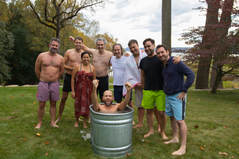
I love loving the people I work with. We’re now a distributed circle of six, plus three developers who work for my dear comrade, Franko, the mastermind behind M5 Network’s core “ELVIS” technology. We’ve been using our own tools consistently on ourselves and are “jamming.”
We’ve got one core value, stated as “Learn and Grow” and when we do gather, bringing this to the fore has helped us jell as a team. The Jam session above was from our most recent in a series of offsites every 2-3 months. The one before that featured Wim Hof’s (see this post about Wim Hof - the inspiration behind our very first Circle test) lead learning designer teaching us all to endure an ice bath. Which is good, because that feeling echoes many days on this start-up roller-coaster.

Since it is the end of 2017, and I haven’t posted to this site for three years, and don’t send holiday cards, I’ll include a quick family update. Julie is doing really well after a challenging year, although is pining for the beauty of Barcelona. She’s done an unbelievable job of slogging through a year-long renovation of our home in Park Slope, Brooklyn. But her creativity is most widely seen outside our house on Halloween (hello washing machine and fortune teller!). Audrey is in love with gymnastics, working out four hours a day and reminding me what working hard at your passion looks like. And Hazel reminds me every day how to be positive and hilarious. Poop!


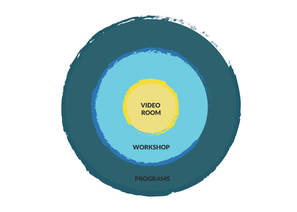

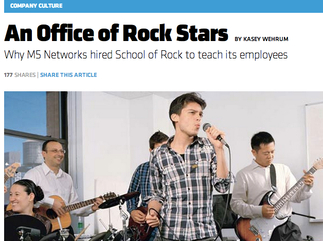




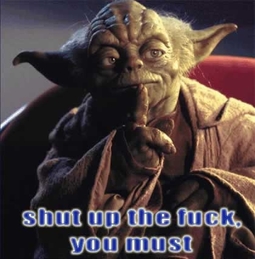
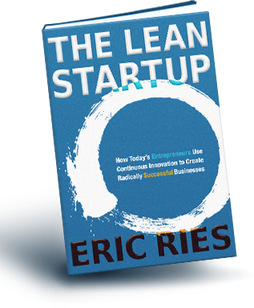
 RSS Feed
RSS Feed